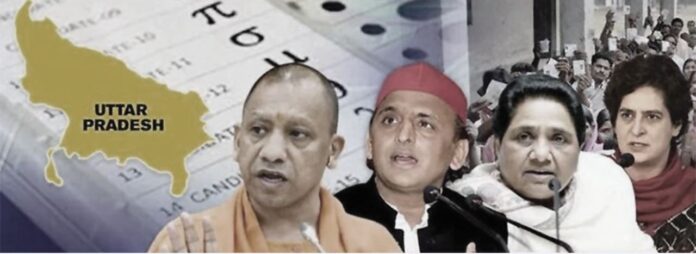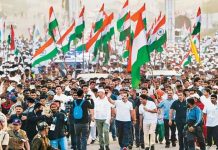By Chanakya
Of the five states going to polls from February 10, Uttar Pradesh is the most important, partly because it offers 403 assembly seats and also partly because this is the second base, after Gujarat, for the ruling Bharatiya Janata Party (BJP). It has also to be kept in mind that keeping this state in its pocket is important, because there are 80 Parliament seats on offer in this state, apart from 30 Rajya Sabha seats.
The so-called “double engine ka sarkar” in the state now seems a trifle worried this time around, and the BJP is desperate to get the equations right this time. The main reason is the apparent support from the ground level that the Samajwadi Party (SP) is receiving. The SP, led my Akhilesh Yadav, is coming back to claim its position after five years, and there has been a sort of groundswell of support, especially from Western UP.
Within this, several tactical alliances have been made. Looks like nobody wants to go it alone this time around, except Indian National Congress, which has not been able to line up any alliance with any party so far.
Here is a look at all the alliances in UTtar Pradesh
The SP-RLD deal
First let us talk about the SP-Rashtriya Lok Dal (RLD) alliance. The SP is contesting the UP elections with the Jayant Chaudhary-led RLD and a host of caste-based parties. In western UP, the hotbed of farmers’ agitation against the now-repealed farm laws, the RLD is its key partner.
The RLD has emerged as the biggest political beneficiary of the farmers’ agitation and poll pundits have dubbed its alliance with the SP as the principal opposition to the ruling Bharatiya BJP in western Uttar Pradesh.
The slogan for this alliance is: “The Samajwadi Party-National Lok Dal alliance will bring change in Uttar Pradesh. Mantra for youth, farmer’s development. Akhilesh and Jayant are coming.”
Sources, quoted in news reports, said that the RLD had initially demanded 62 seats, but the SP was not willing to give more than 30. Later, Akhilesh and Jayant spoke over the phone for a long time and during the discussions the final seat count was fixed at 36.


The RLD has a presence in West UP and it will contest in around 32-33 seats in the region. It will also get one or two seats in east UP where it had demanded tickets for some of its party leaders. RLD will contest seats in Muzaffarnagar, Baghpat, Meerut, Bulandshahar, Mathura, Aligarh and a few other districts.
Akhilesh has said : “The people of the state want change and development. They will support the SP-RLD alliance. It’s clear – that’s why big leaders who otherwise travel in helicopters are now having to come to the small gullies of the state to campaign. We will fulfil all our poll promises, see our electoral record we always have.”
When the SP-RLD alliance announced its second list of seven candidates, it was found that all these have been given to RLD.
With this, the RLD has so far got to contest 26 seats while the SP will field its candidates from 10 seats in the areas covered in the early phases of the seven-phase polls in the state. The alliance had announced its first list of 29 candidates on January 13.
In SP’s first list of 159 candidates, only 30 are Muslims. This is seen as a measure to neutralize any polarization attempt. Although the full list of the candidates is yet to come, in 2017 the Samajwadi Party had fielded 87 Muslim candidates in total. So far, 18 Yadavs, seven Kurmis, seven Jats, four Nishads and four Gurjars have also been fielded.
That a part, 8 Brahmins, five Thakurs, six Vaishyas and two Sikh community candidates are in the list. 31 Dalits are in the fray on reserved seats. While 11 candidates from Saini, Maurya, Kushwaha fraternity have been fielded. Most of the other candidates are from backward and most backward castes. Till now candidates have been declared for 202 seats.
In SP’s first list of 159 candidates, only 30 are Muslims. This is seen as a measure to neutralize any polarization attempt… in 2017 the Samajwadi Party had fielded 87 Muslim candidates in total.
Sources in the Samajwadi Party said a lesser number of Muslim candidates was announced as per a well-thought strategy to counter polarisation attempts by the BJP. Most of the Muslim candidates fielded by the SP and its allies are from the western part of the state.
SP President Akhilesh Yadav is in the fray from Mainpuri district’s Karhal and Pragatisheel Samajwadi Party (Lohiya) president Shivpal Singh Yadav from their traditional seat in Jaswant Nagar and jailed leader Azam Khan from Rampur.
The party has fielded former state minister Dharam Singh Saini, who crossed a few days ago, from Nakur seat in Saharanpur district.
The state’s Deputy CM and BJP leader Keshav Prasad Maurya has attacked the SP list, saying the list is new, but the culprits are the same.
Azam Khan’s son released from jail
Abdullah Khan, son of SP leader Azam Khan, is out on bail. While speaking to the press on his release, he said that his father, who has been detained in the Sitapur jail for one and-a-half years, has been framed in several cases and the Yogi Adityanath government has made immense efforts to keep him behind bars. Expressing hope in the judicial system, he said, “I just have faith in the judiciary, courts will give us justice.”
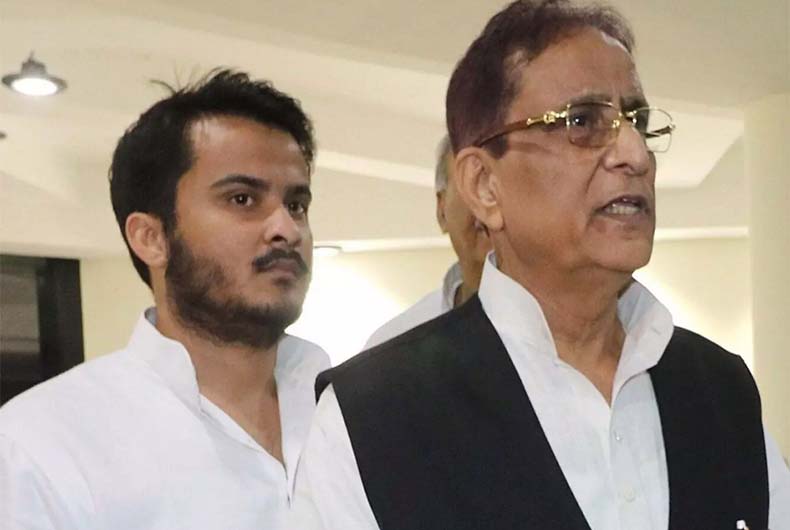

In July, two contradicting birth certificates were submitted by Abdullah Khan for which the UP police filed an FIR against him. One of the birth certificates which he had used during his election nomination process states his birth date as September 30, 1990 and the other states his birth date as January 1, 1993.
Azam Khan and his family have been charge-sheeted by Rampur police for providing false information for getting the passport made and then misusing it under Sections 420, 467, 468 and 471 of the Indian Penal Code (IPC) and Section 121 (1) A under the Passport Act.
National Democratic Alliance (NDA)
In September, the NDA confirmed an alliance between BJP, Apna Dal (Sonelal) and the NISHAD Party. In October, there were major restructuring efforts by the alliance with new faces and revamp of parties in an effort to battle anti-incumbency. In addition, the alliance has to handle various infightings. On January 13 the NDA sealed its seat sharing pact, with NISHAD Party getting 13-17 and Apna Dal getting 10-14 and BJP competing in the remaining seats.
On January 21 the BJP released its second list of candidates with 85 names. Aditi Singh, the young MLA who recently quit Congress to join BJP, will be contesting from Rae Bareli. NDA has so far named a total of 195 candidates in four tranches.
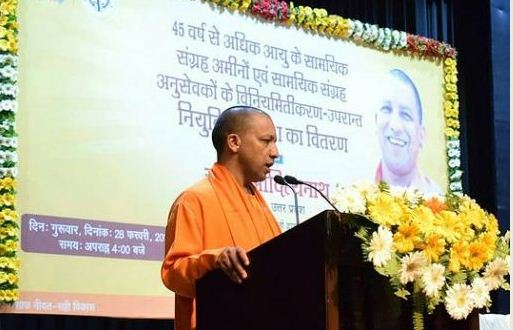

The list also includes former chief of UP Anti-Terrorist Squad (UP ATS) Asim Arun, a Jatav dalit, who recently quit the Indian Police Service (IPS) with nine years of his tenure remaining. He has been fielded from Kannauj, a reserved seat. When he quit, Arun was the police commissioner of Kanpur.
The first list of candidates for 107 seats for first and second phase excludes 2 seats, that is CM Yogi’s contesting from Gorakhpur city and Deputy CM Keshav Maurya contesting from Sirathu in Prayagraj region.
The list has 26 women and candidates belonging to other backward classes (OBCs). In total, of the 195 seats for which it has named candidates, the BJP has named 26 women.
The first list of candidates for 107 seats for first and second phase excludes 2 seats, that is CM Yogi’s contesting from Gorakhpur city and Deputy CM Keshav Maurya contesting from Sirathu in Prayagraj region.
The party had announced names of candidates for 57 out of the 58 seats which will go to polls in the first phase on February 10 and 48 out of 55 seats which will vote in the second phase on February 14. Besides, the BJP has also given more than 68 per cent tickets to candidates from backward classes and women. In the first list, 44 OBC candidates, 19 from Scheduled Castes and 10 women have been named by the BJP.
The BJP’s ally, Apna Dal (S) has fielded a Muslim candidate Haider Ali Khan from the Suar seat, in western UP’s Rampur district, from where Abdullah Azam, the son of jailed Samajwadi Party MP Azam Khan is expected to contest.
Shah meets Jat leaders
With the NDA’s somewhat shaky position in western UP, BJP leader Amit Shah met leaders and influencers from the Jat community of this region. The meeting took place at BJP MP Parvesh Verma’s residence in New Delhi. It was attended by Union minister Sanjeev Balyan, state minister Bhupendra Chaudhary and other senior leaders.
Amit Shah said at the meeting: “Jats don’t think for themselves but for others, like BJP does for the nation. Jats think of farmers’ interests and BJP too. Jats think of the country’s security and BJP too. The Jat community has showered us with votes every time we approached, even when we sometimes didn’t listen to you.”
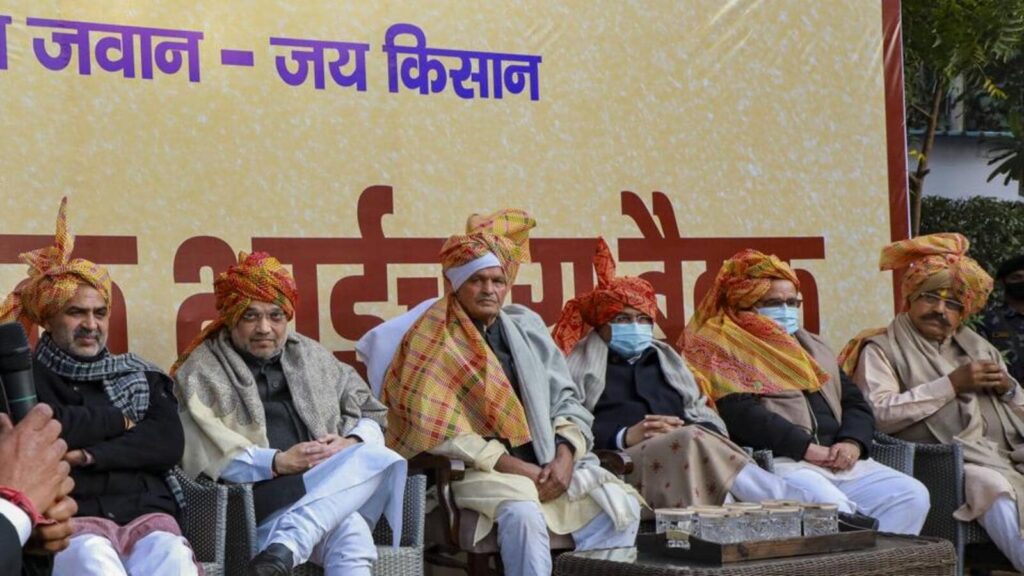

The Jat community had supported the year-long farmers’ protest against the Centre’s three farm bills in 2020 and 2021.
After the meeting, an attendee reportedly told ANI news agency: “We have demanded Bharat Ratna for [former PM] Chaudhary Charan Singh, reservation for Jats and proportionate representation in central and UP governments. The home minister has responded positively.”
Amit Shah went on to say, “You fought the Mughals, we are fighting too. We’ve done a few things, let me recount them. We got Mahendra Pratap Singh’s respect. Soldiers asked for ‘One Rank One Pension’, we gave it. We appointed three Jat governors and nine MPs. 40,000 people had died due to Article 370 in Jammu and Kashmir, Modi threw it away.”
BSP’s alliance
What is the position of BSP supremo Mayawati, the four-time Chief Minister of the state? She seems inactive, a bit, and she has said that she herself will not contest the polls. Her party, unlike other years, has said that it will fight the election all by itself.
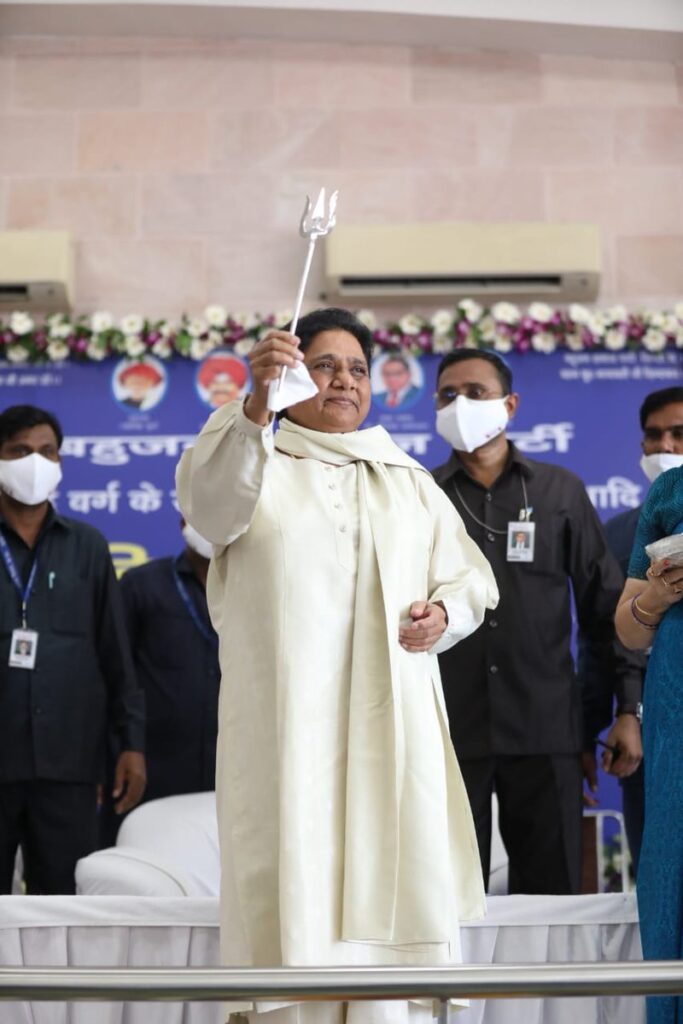

However, BSP went into alliance with ten small political parties namely India Janshakti Party, Pacchasi Parivartan Samaj Party, Vishwa Shanti Party, Sanyukt Janadesh Party, Adarsh Sangram Party, Akhand Vikas Bharat Party, Sarvajan Awaz Party, Jagruk Janata Party and Sarvajan Sewa Party.
United Progressive Alliance (UPA)
UPA, or the Congress, will also go ity alone in UP. It has failed to line up any alliance, unlike the ast time, when it had developed an understanding with the SP. On October 19, 2021, Uttar Pradesh Congress leader Priyanka Gandhi announced 40% of tickets to women in upcoming Uttar Pradesh assembly polls. When queried by the media if the Congress has any chief ministerial face for the polls, Priyanka avoided the question.
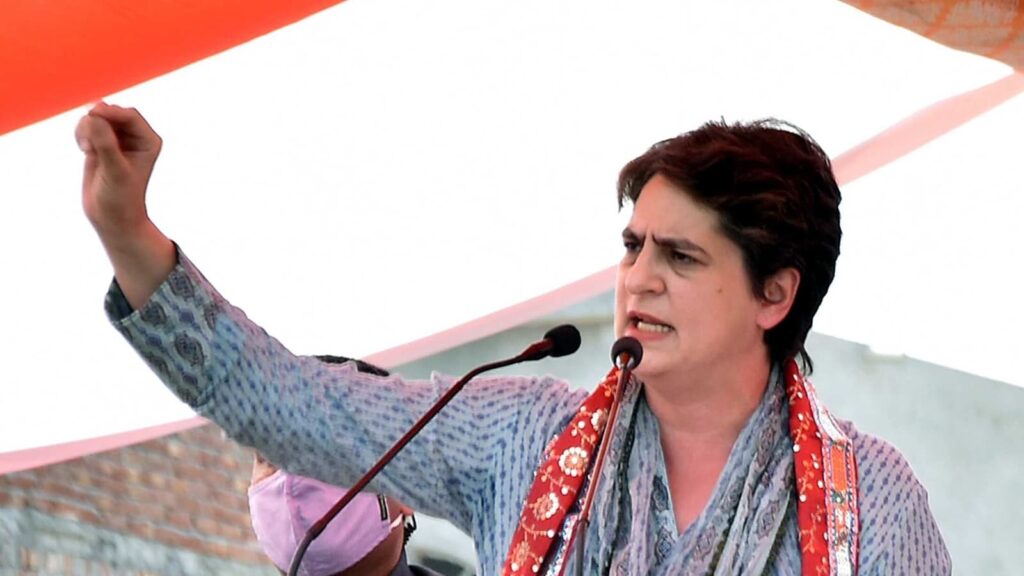

It seems that the party, which has been out of power i the state for the past 32 years, hardly has any cogent strategy in place for these polls. The future of the once powerful party looks pretty bleak.
Others in the fray
Other major parties, not part of any alliance, are also in the fray. The AAP had originally announced that it would compete in all 403 seats but later retracted and started an alliance discussion with SP. Then it was the Shiv Sena’s turn to announce that it would fight all 403 seats. Tbaht was later reduced to 50-100 seats.
The AIMIM headed by Asaduddin Owaisi originally was part of alliance and was given a seat share of 100 seats. However, when SBSP broke the alliance to join hands with SP, AIMIM confirmed they would fight the election alone in 100 seats.
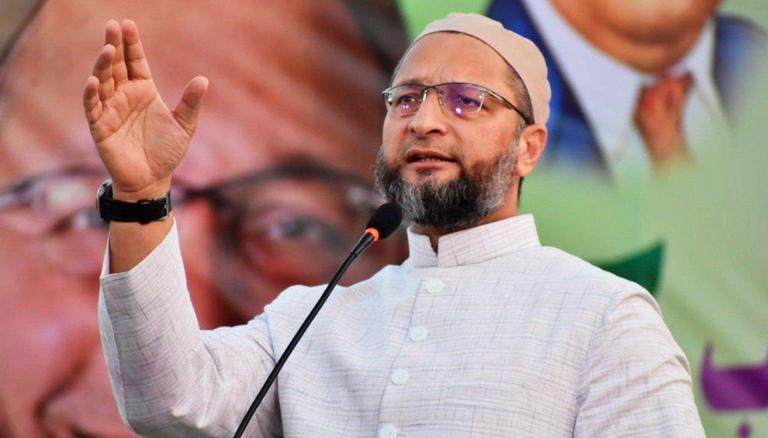

The Trinamool Congress also wanted to contest, and wanted to support SP too, but as of now no candidate of this party figures in any list.

